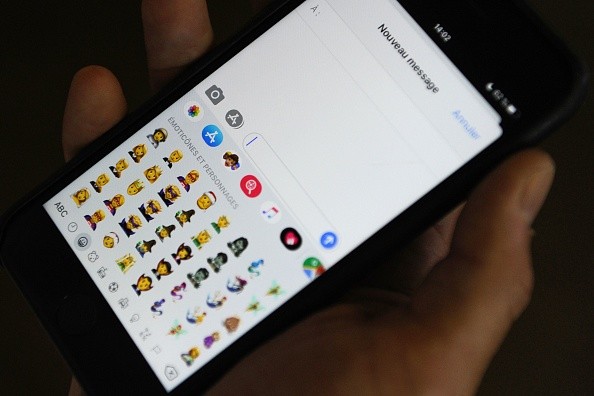Apple is not looking into making a change to its famous iMessage feature that is available on and across its devices like the iPhone, iPad, Mac, and Apple Watch. This stems from the European Union's law that is now requiring the Cupertino giant to adopt RCS for its instant messaging feature, one that can send and receive higher quality texts to other devices better than SMS and MMS.
RCS is best known for the technology which Google Messages use, as well as other Android-based smartphones, bordering on a better text messaging feature.
Apple is Not Adopting the RCS for its iMessage

(Photo : TENGKU BAHAR/AFP via Getty Images)
As first reported by Bloomberg's Mark Gurman, Apple is making a big leap to allowing the iPhone to have third-party App Store alternatives available in the market in compliance with the EU's Digital Markets Act (DMA).
However, while Apple's compliance with the DMA will see its effect on third-party apps for the iPhone, there seems to be one service that it does not plan on changing, and it is the iMessage.
Despite the RCS being part of the EU's DMA, Bloomberg claims that Apple is not considering adopting this for its Messages and iMessage feature anytime soon.
Apple's engineers regarded that opening its iMessage to adopting a third-party service like the RCS would defeat its end-to-end encryption and other privacy features of the application.
Read Also: Apple Sideloading, Third-Party App Stores Coming Soon Because of EU Law-But for US?
EU Law for RCS Universal Messaging System
According to 9to5 Mac, the EU's DMA has a transition period for companies to adhere to until 2024.
This means that Apple has more time to rethink its decisions to gatekeep the iMessage for the RCS requirement in the region, or the company would face a 20 percent fine on its global annual revenue under the law.
The RCS is the universal messaging system that uses WiFi or cellular data to improve text messaging, something similar to the iMessage, but is universal and currently used by some Android devices.
Apple and its Adherence to EU Laws
The famous Cupertino company has been called a "monopoly" multiple times for different aspects of its technology, and some examples would be its App Store policies and Apple Pay. Its operations and the way it presents itself against competition and to the public led it to face many antitrust lawsuits from before until the present day.
One of its most controversial would be with the European Union where it required the company to change a significant feature on its devices, and that is its Lightning connectors for charging.
A former Apple executive, Tony Fadell, best known for his work in creating the iPod device for the company, called Cupertino a monopoly for its long hold on its exclusive charging and data connector.
This is amidst the EU pressure on Apple to adopt USB-C ports for its devices to help transition the world to this universal technology.
However, there are already speculations regarding Apple's adoption of the USB-C for the next year's release of its smartphone, the iPhone 15, and people would only have to wait until its launch. It is a different story for the RCS though, as it would be a massive change for the iMessage which may have a similar feature, but remains exclusive for iOS and macOS users.
Related Article: Apple's iPhone Production in India May Triple by 2025, Reaching 12-15 Million Units in Two Years









